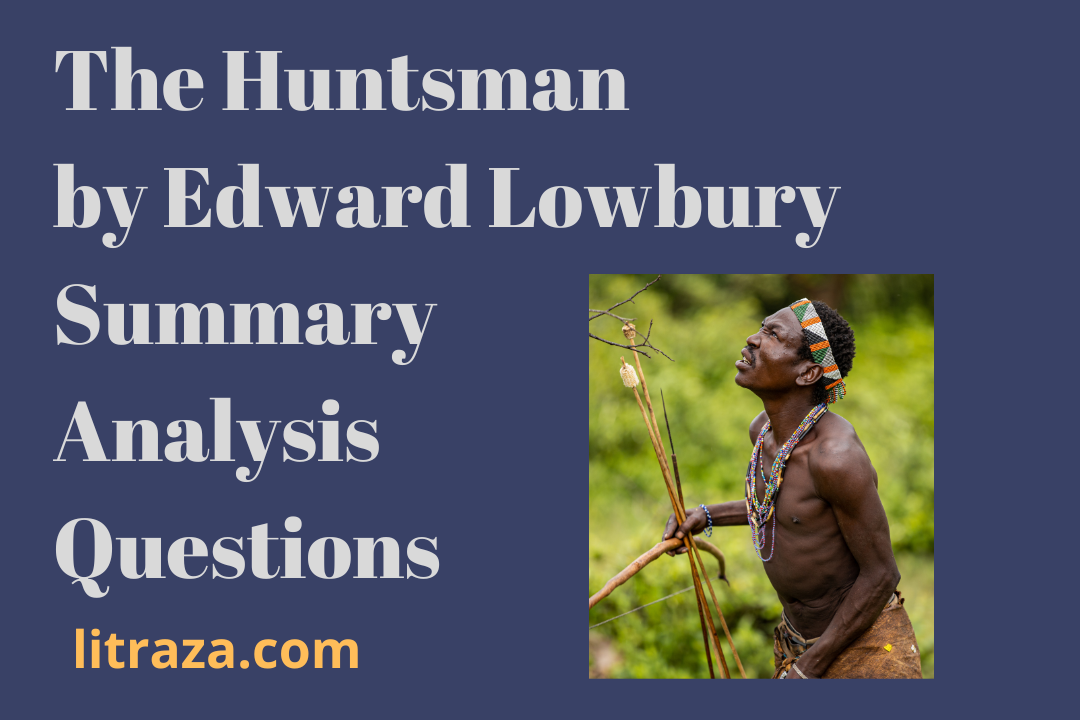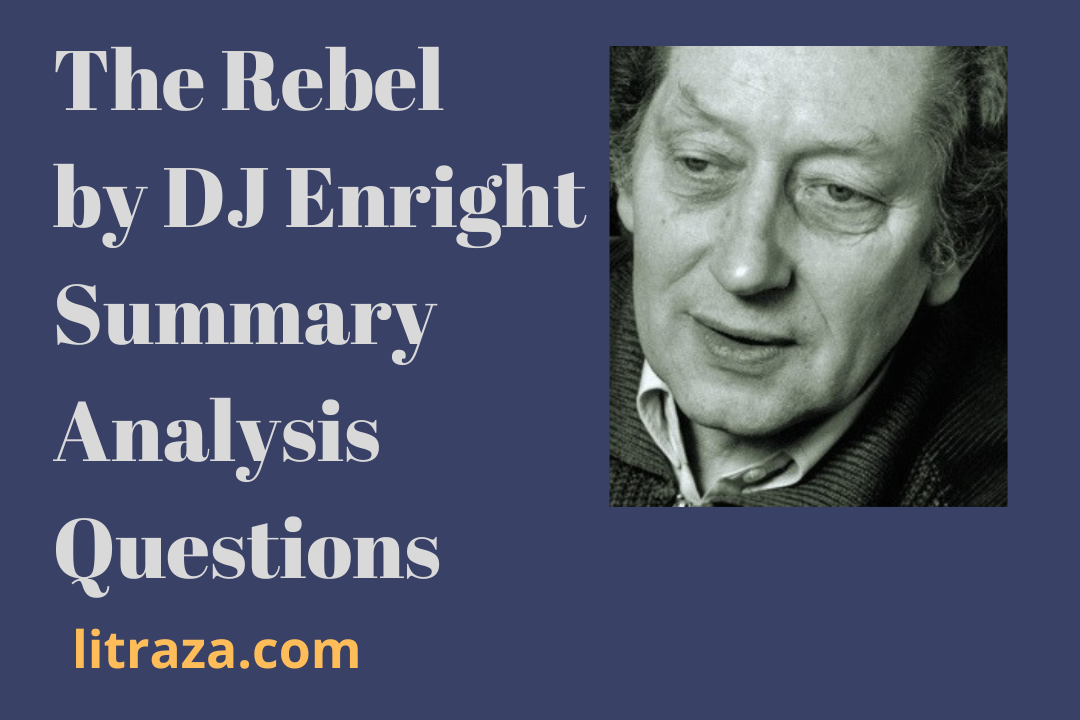Introduction
The Huntsman by Edward Lowbury is a poem with a message. It is based on Kenyan folklore. In this poem, the poet advises us to control our emotions and say only what is necessary. He presents the consequences of speaking unnecessarily. The Huntsman by Edward Lowbury is a part of the English syllabi BA/ADA of the Punjab University and the Sargodha University. Therefore, The Huntsman by Edward Lowbury – Summary Analysis Questions is a frequent search on the web. This article, The Huntsman by Edward Lowbury – Summary Analysis Questions, will prove helpful for the students. It will provide them with quality content for the preparation of the examination. This article will help them understand the poet’s line of thought and his approach to the idea he has presented. The Huntsman by Edward Lowbury – Summary Analysis Questions will also assist teachers with its quality content. It will facilitate them in organizing their lectures on this topic.
The Poet
Edward Lowbury, born on December 6, 1913, had a very productive and eminent career as a poet and a medical practitioner. As a medical practitioner, he worked on hospital infections and founded the Hospital Infection Society. He was also a specialist in burn infections.
Edward Lowbury had as successful a career as a poet as a practitioner. His talent for poetry surfaced at a very young age of ten when he won a prize, Newdigate, for his poetry as an undergraduate at Oxford. He published 14 books of his poetry. His poems reflect his deep insight into human psychology. They also reflect his art of characterization. The Huntsman by Edward Lowbury is an example of his poetic talent. His wife, Alison Young, played an important part in his career as a writer. After she died in 2001, he went blind from glaucoma. He died on July 10, 2007.
The Huntsman by Edward Lowbury Text

Stanza 1
Kagwa hunted the lion,
Through bush and forest went his spear.
One day he found the skull of a man
And said to it, ‘How did you come here?’
The skull opened its mouth and said,
‘Talking brought me here.’
Stanza 2
Kagwa hurried home;
Went to the king’s chair and spoke:
‘In the forest, I found a talking skull.’
The king was silent. Then he said slowly,
‘Never since I was born of my mother
Have I seen or heard of a skull which spoke.’
Stanza 3
The king called out his guards:
‘Two of you now go with him
And find this talking skull;
But if his tale is a lie
And the skull speaks no word,
This Kagwa himself must die’
Stanza 4
They rode into the forest;
For days and nights, they found nothing.
At last, they saw the skull; Kagwa
Said to it, “How did you come here?”
The skull said nothing. Kagwa implored,
But the skull said nothing.
Stanza 5
The guards said, ‘Kneel down.’
They killed him with sword and spear.
Then the skull opened its mouth;
‘Huntsman, how did you come here?’
And the dead man answered,
‘Talking brought me here.’
Summary of the Poem The Huntsman by Edward Lowbury
Introduction
The Huntsman by Edward Lowbury is based on a Kenyan folk tale. The poem teaches us a moral lesson that we should avoid talking unnecessarily. The poet makes good use of irony and suspense. He describes how Kagwa, the Huntsman, becomes the prey of his spear. The fact about the talking skull is full of suspense. The reader remains curious about its response. Kagwa’s end is a fine example of the irony of fate.
Kagwa’s Encounter with the Skull
Kagwa, a brave hunter, used to hunt lions in jungles. Once he found a skull of a man. He asked it humorously how it came there. The skull replied that talking had brought it there. It meant that talking needlessly brought about the death of the man whose skull it was.
Kagwa at the King’s Court
Kagwa, in his nervousness and fear, could not understand the underlying message in the words of the skull. He was so excited that he could not keep the knowledge about the talking skull to himself. He desired to share this information and the most suitable person he found for it was the King. So, he rushed to the King’s court and told the King about the talking skull.
The King’s Response to Kagwa’s Claim
The king said that ever since his birth, he had never heard of a skull that spoke. However, he appointed two guards to accompany Kagwa and find the talking skull. He also ordered them to kill Kagwa immediately if the skull spoke nothing.
Kagwa’s Death – Irony of Fate
Kagwa and the guards looked for the skull for many days and nights. Finally, they found it. Kagwa asked the skull how it came there. The skull spoke nothing. He implored repeatedly, but in vain. The guard beheaded Kagwa there and then. Now the skull asked Kagwa how he came there. “Talking brought me here”, was Kagwa’s reply.
The Huntsman by Edward Lowbury – Important Questions
Q1: What are the elements of irony and satire in the poem, The Huntsman by Edward Lowbury?
Q2: What is the message/lesson of the poem, The Huntsman by Edward Lowbury?
The Huntsman by Edward Lowbury presents a fine example of irony and satire. Before we trace out the elements of irony and satire in this poem, it would be beneficial if we could see what they mean.
Irony
Irony is a literary device that facilitates the writer to convey his message through contradictory references. These contradictory references may occur in language, character, or situation. There are multiple layers of the message. One needs a profound observation to understand an ironic remark, situation, or personality. Consequently, the reader has to undergo a proper mental exercise to reach the real meaning.
Satire
Through satire, the writer focuses on exposing or deriding the absurdity or folly of a character, institution, or society as a whole.
Coming back to our topic, in The Huntsman by Edward Lowbury, we find the poet employs both of these to ridicule Kagwa. While ridiculing Kagwa, the poet also imparts a moral lesson.
Irony in The Huntsman by Edward Lowbury
Kagwa’s First Encounter with the Talking Skull
There are two types of irony in this poem. Firstly, the poet employs verbal irony. Kagwa who is a brave hunter finds a skull in the jungle. He asks the skull how it came there. The skull opens its mouth and tells Kagwa: ‘Talking brought me here.’ It is surprising for Kagwa to find a skull that speaks. In his excitement and fear, he does not pay attention to the underlying message in these words.
Kagwa’s Claim and the King’s Response
Secondly, there is situational irony. Kagwa rushes to the King’s court and without any understanding of the situation tell the King about the talking skull. He aims to win the King’s appreciation. But he misjudges the situation. The King is not impressed with his description of the talking skull. Instead, he appoints his guards to accompany Kagwa and find the talking skull. The most ironic part is that the King orders his guards to kill Kagwa at once if he fails to prove his claim. The situational irony reaches its climax when Kagwa and the guards find the skull. Kagwa asks it repeatedly how it came there, but the skull says nothing.
Kagwa’s End – Irony of Fate
Finally, Kagwa’s habit of speaking needlessly impels Kagwa to the irony of fate. In the end, the guards ask Kagwa to kneel. They behead Kagwa on the spot. Now, the skull ironically asks Kagwa how he came there, and Kagwa replies: ‘Talking brought me here.’
Satire in The Huntsman by Edward Lowbury
By the use of irony, Edward Lowbury hurls satire on the likes of Kagwa who are in the habit of speaking unnecessarily. The poet accentuates that one should control one’s emotions and analyze the situation before making tall claims. Furthermore, it is not necessary that others may also believe what you say. Also, this habit of speaking unnecessarily may cause serious damage as in the case of Kagwa. It is also the message or lesson of this poem that one should be very careful with his words.
Click for a high-quality article on Patriot into Traitor by Robert Browning.




[…] Here is an important article for you on The Huntsman by Edward Lowbury. […]